
Kribi Beach: The Jewel of Cameroon's Coastline
Nestled along the pristine coastline of Cameroon, Kribi Beach is a serene and picturesque destination that promises an unforgettable tropical getaway. Known for its golden sands and crystal-clear waters, Kribi Beach offers a perfect blend of relaxation and adventure. Visitors can bask in the sun, take a refreshing dip in the ocean, or explore the nearby attractions that make this beach a true gem. One of the must-visit spots near Kribi Beach is the Lobe Waterfalls. Here, the river cascades directly into the Atlantic Ocean, creating a stunning natural spectacle that is both rare and captivating. Travelers can take a boat ride to get up close to the falls or simply enjoy the view from the shore. The surrounding area is also rich in wildlife, making it a great spot for nature lovers. Kribi Beach is also renowned for its vibrant local culture and delicious seafood. The beachside restaurants serve freshly caught fish, prawns, and other local delicacies that are sure to tantalize your taste buds. The friendly locals add to the charm of this destination, making every visitor feel welcome and at home. Whether you're looking for a peaceful retreat or an exciting adventure, Kribi Beach has something to offer. The combination of natural beauty, cultural richness, and warm hospitality makes it a must-visit destination in Cameroon.
Local tips in Kribi Beach
- Visit the Lobe Waterfalls early in the morning to avoid crowds and enjoy the serene atmosphere.
- Try the local seafood at beachside restaurants for a fresh and authentic dining experience.
- Bring cash, as some local vendors and smaller establishments may not accept credit cards.
- Pack sunscreen and insect repellent to protect yourself from the sun and bugs.
- Consider hiring a local guide to explore the nearby wildlife and learn more about the local culture.
Kribi Beach: The Jewel of Cameroon's Coastline
Nestled along the pristine coastline of Cameroon, Kribi Beach is a serene and picturesque destination that promises an unforgettable tropical getaway. Known for its golden sands and crystal-clear waters, Kribi Beach offers a perfect blend of relaxation and adventure. Visitors can bask in the sun, take a refreshing dip in the ocean, or explore the nearby attractions that make this beach a true gem. One of the must-visit spots near Kribi Beach is the Lobe Waterfalls. Here, the river cascades directly into the Atlantic Ocean, creating a stunning natural spectacle that is both rare and captivating. Travelers can take a boat ride to get up close to the falls or simply enjoy the view from the shore. The surrounding area is also rich in wildlife, making it a great spot for nature lovers. Kribi Beach is also renowned for its vibrant local culture and delicious seafood. The beachside restaurants serve freshly caught fish, prawns, and other local delicacies that are sure to tantalize your taste buds. The friendly locals add to the charm of this destination, making every visitor feel welcome and at home. Whether you're looking for a peaceful retreat or an exciting adventure, Kribi Beach has something to offer. The combination of natural beauty, cultural richness, and warm hospitality makes it a must-visit destination in Cameroon.
When is the best time to go to Kribi Beach?
Iconic landmarks you can’t miss
Public Beach Kribi
Unwind on the dark sands of Kribi Public Beach, where the Atlantic breeze whispers tales of Cameroon's captivating coastline and tranquil beauty.
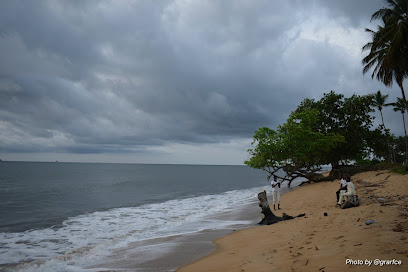
Le Phare De Kribi
Explore Le Phare De Kribi: a historic lighthouse offering breathtaking ocean views and a glimpse into Kribi's maritime heritage on Cameroon's coast.
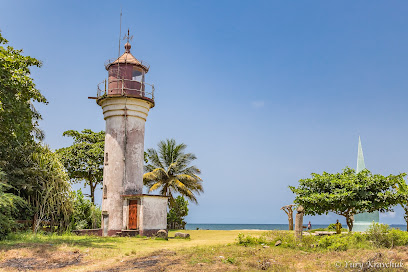
Kribi beach
Discover Kribi Beach: Golden sands, clear waters, and the unique Lobe Waterfalls await in Cameroon's coastal paradise. A blend of relaxation and adventure!
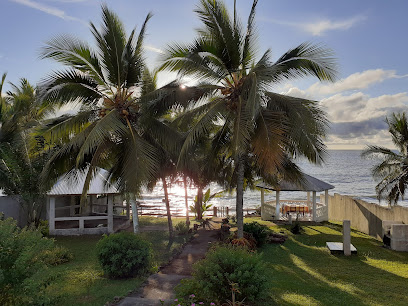
Plage kribi
Experience the breathtaking beauty and vibrant culture of Plage Kribi, Cameroon’s idyllic beach destination perfect for relaxation and adventure.
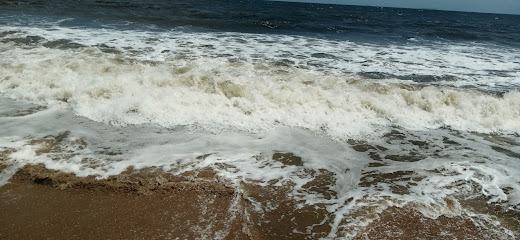
Kribi Cameroun
Discover Kribi, Cameroon: Golden beaches, cascading waterfalls, and rich cultural experiences await on the Gulf of Guinea.

Beach kribi
Experience the golden sands of Kribi Beach, where the river meets the ocean and Cameroonian culture thrives along the coast.

Kribeach
Experience Kribi's coastal charm at Kribeach, where fresh seafood and ocean views create an unforgettable dining experience.
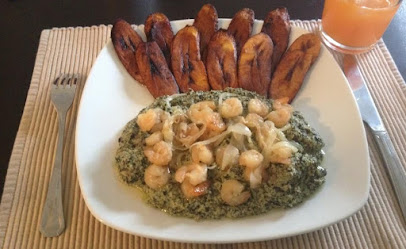
Unmissable attractions to see
Chutes de la LOBE
Explore the breathtaking beauty of Chutes de la LOBE, a majestic waterfall in Cameroon that offers tranquility and stunning scenery for every traveler.
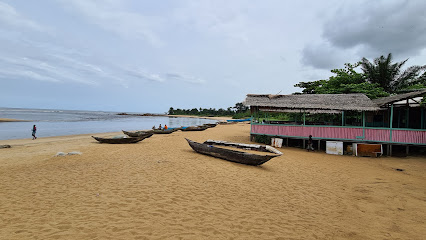
Plage kribi
Experience the tranquil beauty of Plage Kribi, Cameroon’s premier beach destination, where relaxation meets adventure along stunning shores.
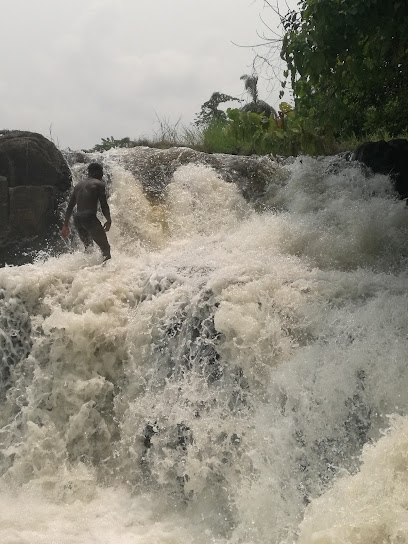
Kribi Cameroun
Experience the stunning beaches, vibrant culture, and natural beauty of Kribi, Cameroon – a perfect destination for relaxation and adventure.

Essential places to dine
Hotel-Restaurant Gites Kribi
Discover tranquility and local flavors at Hotel-Restaurant Gites Kribi – your perfect coastal retreat in Cameroon.

Le Plaisir du Gout
Discover authentic Cameroonian flavors at Le Plaisir du Gout in Kribi – where every meal is a celebration by the sea.
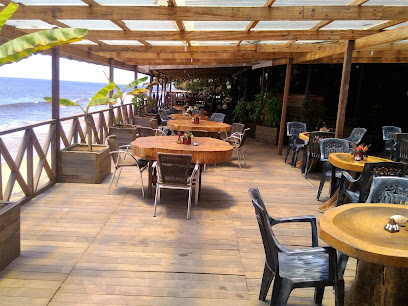
Restaurant Chez Fadil - Kribi
Experience authentic Cameroonian cuisine at Restaurant Chez Fadil in Kribi - where delicious food meets warm hospitality.
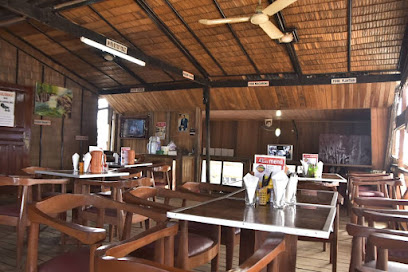
EMERGENCE COPACABANA BEACH KRIBI
Experience delectable seafood and traditional cuisine at Emergence Copacabana Beach in Kribi - where ocean views meet culinary excellence.
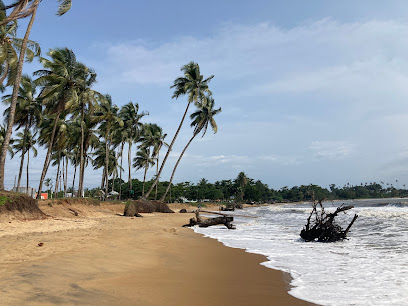
ATLANTIC HOTEL KRIBI
Discover culinary delights at Atlantic Hotel Kribi with ocean views and local flavors in beautiful Kribi.
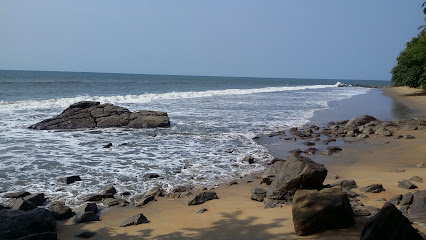
Le Debarcadère
Discover fresh seafood delights at Le Debarcadère in Kribi - where every meal is paired with breathtaking ocean views.
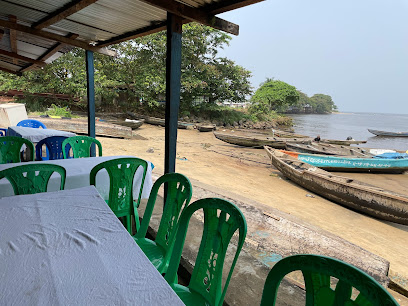
Pieds dans l'Eau
Discover delightful seafood and local cuisine at Pieds dans l'Eau while enjoying stunning ocean views in Kribi.
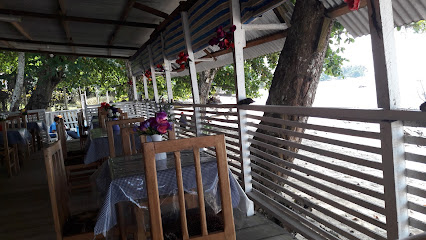
La terrasse de l’océan
Experience exquisite dining at La Terrasse de l’Océan in Kribi—where every meal comes with breathtaking ocean views and delightful local flavors.
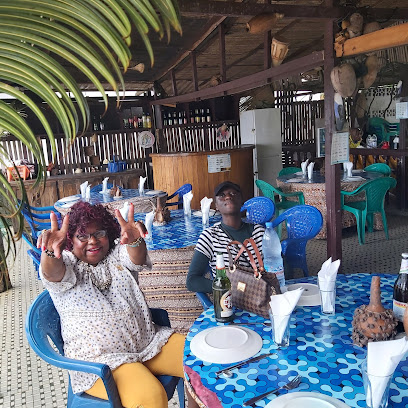
Restaurant Ebene Plus
Discover the authentic tastes of Cameroon at Restaurant Ebene Plus in Kribi – where local flavors meet warm hospitality.
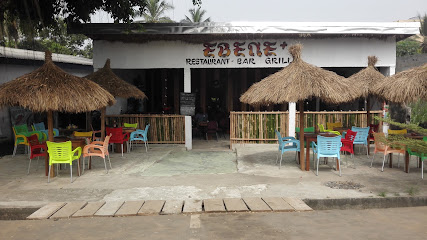
Le Tétraodon lounge
Experience exquisite seafood and local cuisine at Le Tétraodon Lounge in Kribi—where every meal offers stunning coastal views.
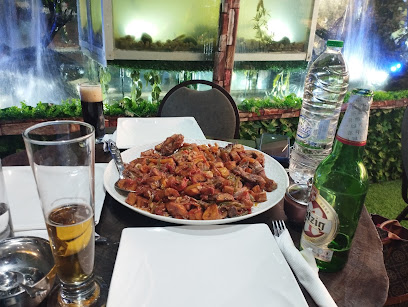
Restaurant cabaret Fleur Marine
Savor exquisite local cuisine while enjoying captivating cabaret performances at Restaurant Cabaret Fleur Marine near Ngoye Beach in Kribi.
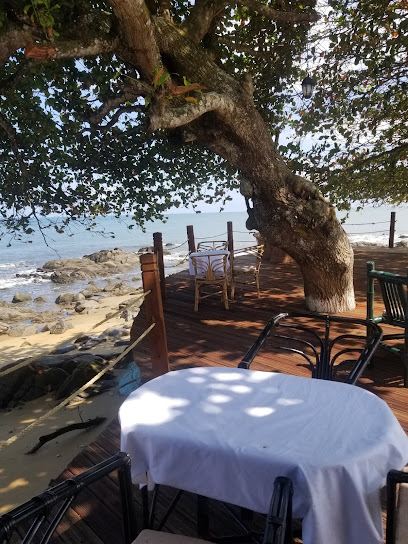
A La Cola De Kribi
Discover fresh seafood and authentic Cameroonian cuisine at A La Cola De Kribi – a must-visit restaurant on your journey through beautiful Kribi.
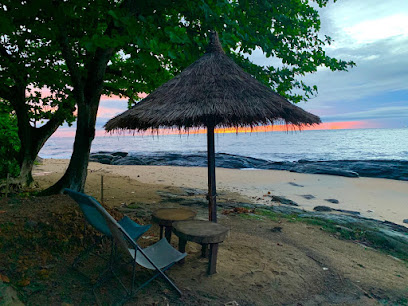
The Rooster
Discover exquisite Western cuisine at The Rooster in Kribi - where every dish tells a story.
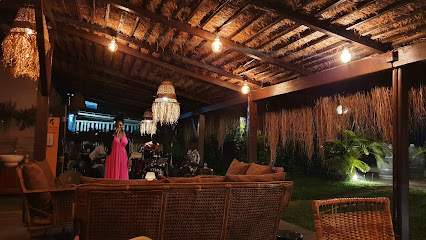
The Burger Bar kribi
Savor mouthwatering burgers in Kribi's vibrant atmosphere at The Burger Bar - your ultimate grill destination.
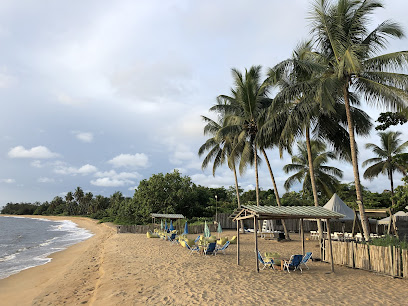
IDODO
Discover IDODO: A must-visit restaurant near Mboamanga Lighthouse in Kribi, offering delicious local cuisine with stunning ocean views.
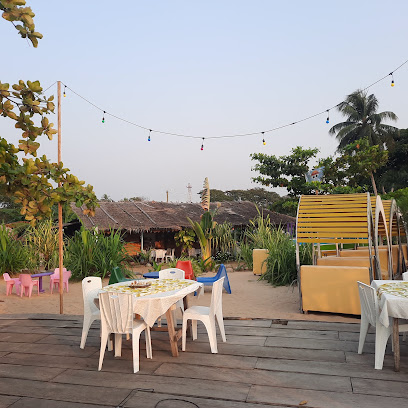
Markets, malls and hidden boutiques
Hôtel Ilomba
Experience luxury and relaxation at Hôtel Ilomba, a beautiful seaside resort in Kribi, Cameroon, featuring stunning ocean views and exquisite dining.

Hotel-Restaurant Gites Kribi
Discover the perfect blend of relaxation and gourmet cuisine at Hotel-Restaurant Gites Kribi, your oasis by the beach in Cameroon.
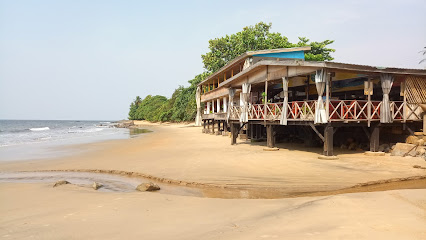
Hotel Tara Plage
Experience a tranquil coastal getaway at Hotel Tara Plage in Kribi, where stunning beaches meet delightful local cuisine.
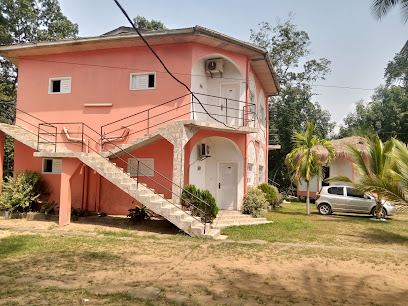
Hotel Framotel
Experience the charm of Hotel Framotel in Kribi, where comfort meets culinary excellence in a beautiful coastal setting.
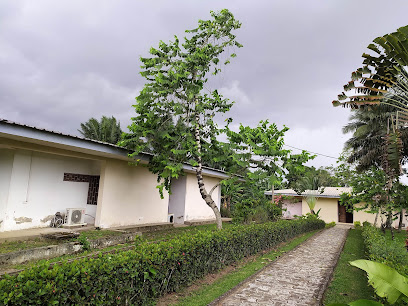
Hôtel du Phare
Experience coastal luxury at Hôtel du Phare, a serene 4-star hotel in Kribi, Cameroon, offering stunning ocean views and easy access to beautiful beaches.
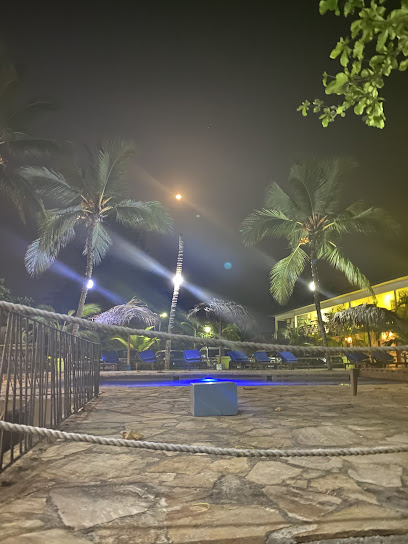
Hotêl La Marée - Kribi
Experience the serene beauty of Kribi at Hotêl La Marée, where coastal charm meets warm hospitality in the heart of Cameroon.
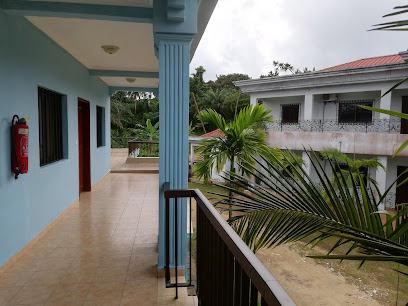
carrefour kingué
Explore Carrefour Kingué in Kribi for a vibrant marketplace experience filled with culture, shopping, and stunning beach access.

Residence Hotel Saint Marco
Discover the tranquil charm of Residence Hotel Saint Marco, your perfect getaway in Kribi, just steps from the stunning beaches and local attractions.

Le Debarcadère
Discover Le Debarcadère, the ultimate seafood destination in Kribi, where fresh flavors and stunning ocean views combine for an unforgettable dining experience.
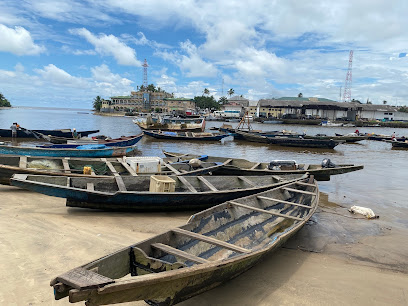
Hotel Elabe Marine
Experience the tranquility of Hotel Elabe Marine in Kribi, an extended stay hotel with a private beach and easy access to local attractions.

Public Beach Kribi
Experience the serene charm of Public Beach Kribi, where golden sands meet azure waters, and local culture thrives in the heart of Cameroon.
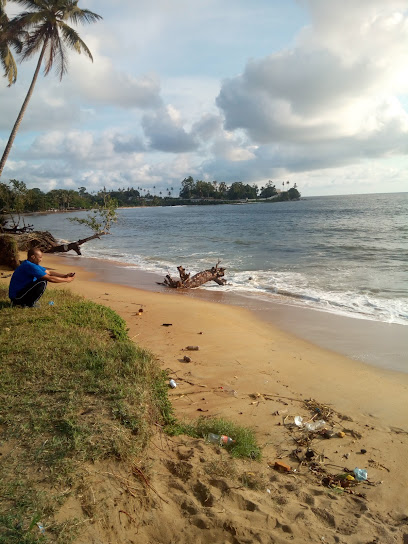
Le Phare De Kribi
Discover the breathtaking views and rich maritime heritage at Le Phare De Kribi, a must-visit tourist attraction along Cameroon’s stunning coastline.
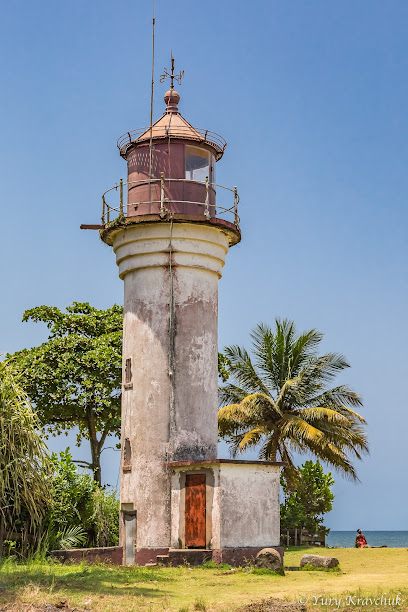
Londji Beach
Experience the tranquil beauty of Londji Beach, a hidden gem offering pristine sands, clear waters, and vibrant local culture.
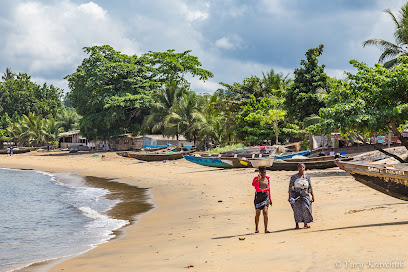
Kribi beach
Discover the tranquility and vibrant culture of Kribi Beach, a stunning destination along Cameroon’s Atlantic coast, perfect for relaxation and adventure.
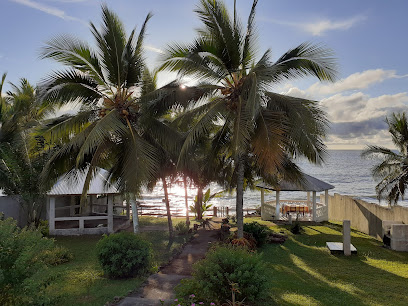
PORT EN EAU PROFONDE DE KRIBI
Experience the vibrant essence of Kribi at Port En Eau Profonde, a gateway to stunning coastal beauty and local maritime culture.
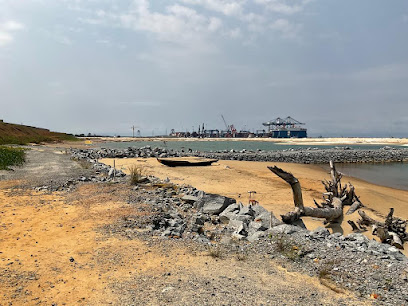
Essential bars & hidden hideouts
Le Plaisir du Gout
Discover the unique blend of traditional and pizza cuisine at Le Plaisir du Gout in Kribi, a must-visit culinary destination for every traveler.
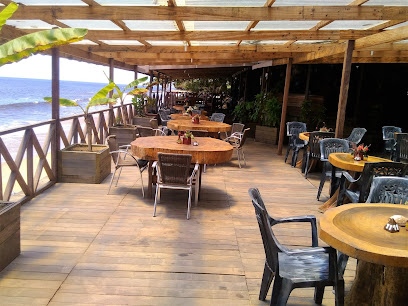
EMERGENCE COPACABANA BEACH KRIBI
Discover Kribi's culinary treasure at Emergence Copacabana Beach, offering fresh seafood and local dishes in a stunning oceanfront setting.
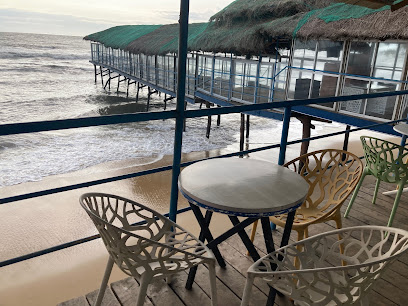
ATLANTIC HOTEL KRIBI
Experience the best of Kribi's culinary scene at Atlantic Hotel, where local flavors meet stunning ocean views.

Le Debarcadère
Experience the best of Kribi's seafood at Le Debarcadère, where fresh flavors meet stunning coastal views.
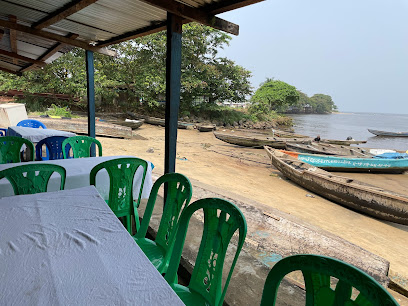
HOTEL COPACABANA BEACH, KRIBI
Experience the beauty of Kribi at Hotel Copacabana Beach, a perfect blend of comfort, adventure, and local culture on Cameroon’s stunning coastline.
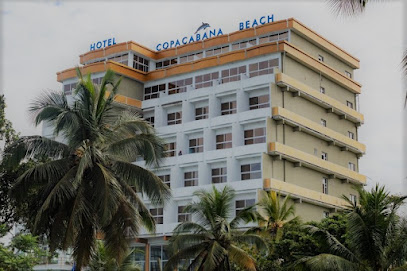
Pieds dans l'Eau
Experience the taste of Kribi at Pieds dans l'Eau, where fresh seafood meets stunning ocean views for an unforgettable dining experience.
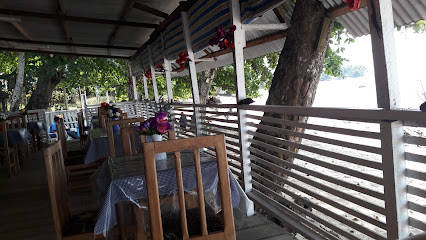
La terrasse de l’océan
Experience exquisite local cuisine with breathtaking ocean views at La Terrasse de l’Océan, a must-visit restaurant in Kribi, Cameroon.
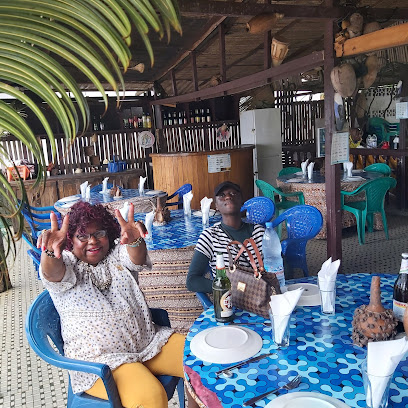
Restaurant Ebene Plus
Discover the flavors of Kribi at Restaurant Ebene Plus, where fresh ingredients meet local culinary traditions in a vibrant coastal setting.
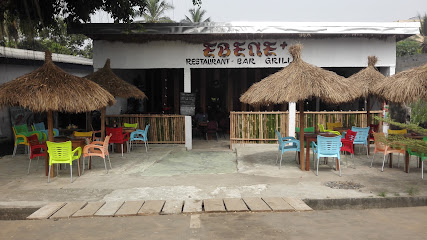
Le Tétraodon lounge
Experience the flavors of Cameroon at Le Tétraodon Lounge, a charming restaurant in Kribi offering delicious local cuisine and breathtaking ocean views.
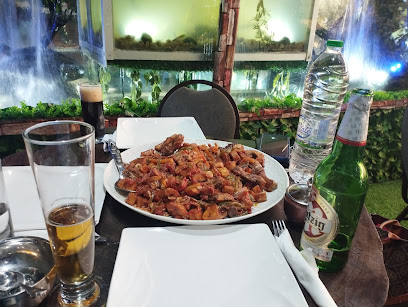
Café de Kribi Cuba Libre
Discover the vibrant salsa scene at Café de Kribi Cuba Libre, where music, dance, and local flavors create a memorable Kribi experience.
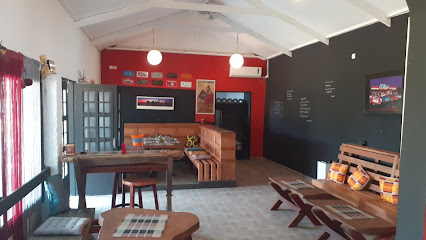
Hotel Residence Coco Beach
Discover tranquility and adventure at Hotel Residence Coco Beach, your perfect getaway in Mboa Manga's tropical paradise.
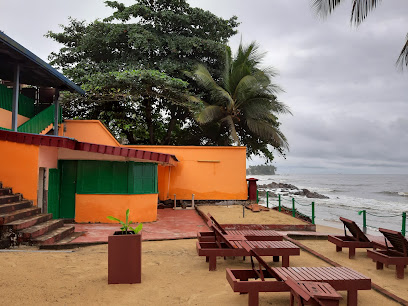
The Burger Bar kribi
Experience the coastal charm and mouthwatering grilled delights at The Burger Bar Kribi, a premier dining destination in Kribi.
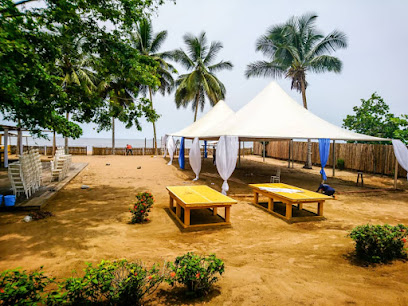
IDODO
Experience the flavors of Kribi at IDODO, a coastal restaurant offering local dishes and stunning ocean views near Mboamanga lighthouse.
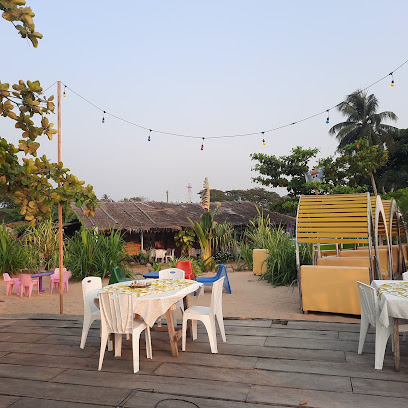
Instagram kribi
Discover the lively atmosphere of Instagram Kribi, a vibrant bar offering refreshing drinks and stunning ocean views in the heart of Kribi.
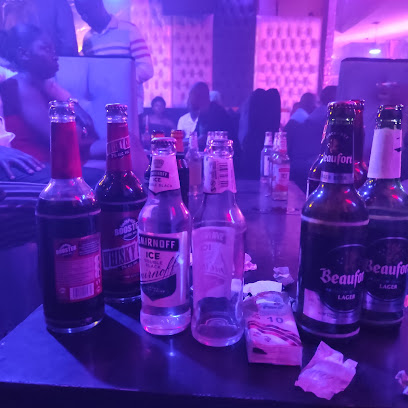
Local Phrases about Kribi Beach
-
- HelloMbolo
[mbo-lo] - GoodbyeAdieu
[ah-dyuh] - YesEh
[eh] - NoAa
[ah] - Please/You're welcomeS'il vous plaît/De rien
[see voo play/duh ryen] - Thank youMerci
[mehr-see] - Excuse me/SorryExcusez-moi/Désolé
[ex-koo-zay mwah/dey-zo-lay] - How are you?Comment ça va?
[ko-mahn sah vah] - Fine. And you?Bien. Et vous?
[byen/eh voo] - Do you speak English?Parlez-vous anglais?
[par-lay voo ahn-glay] - I don't understandJe ne comprends pas
[zhuh nuh kohm-prahnd pah]
- HelloMbolo
-
- I'd like to see the menu, pleaseJe voudrais voir le menu, s'il vous plaît
[zhuh voo-dray vwahr luh meh-noo, see voo play] - I don't eat meatJe ne mange pas de viande
[zhuh nuh mahnj pah duh vee-ahnd] - Cheers!Santé!
[sahn-tay] - I would like to pay, pleaseJe voudrais payer, s'il vous plaît
[zhuh voo-dray pay-yay, see voo play]
- I'd like to see the menu, pleaseJe voudrais voir le menu, s'il vous plaît
-
- Help!Au secours!
[oh se-coor] - Go away!Allez-vous en!
[ah-lay voo ahn] - Call the Police!Appelez la police!
[ah-pay-lay lah po-lees] - Call a doctor!Appelez un médecin!
[ah-pay-lay uh may-sahn] - I'm lostJe suis perdu(e)
[zhuh swee pair-doo] - I'm illJe suis malade
[zhuh swee mah-lahd]
- Help!Au secours!
-
- I'd like to buy...Je voudrais acheter...
[zhuh voo-dray zhey-shey...] - I'm just lookingJe regarde juste
[zhuh ruh-gard zheust] - How much is it?Combien ça coûte?
[kohm-byen sah koot] - That's too expensiveC'est trop cher
[say troh shay] - Can you lower the price?Pouvez-vous baisser le prix?
[poo-vey voo beh-say luh pree]
- I'd like to buy...Je voudrais acheter...
-
- What time is it?Quelle heure est-il?
[kel ur eh-teel] - It's one o'clockIl est une heure
[eel eh oon ur] - Half past (10)Dix heures et demie
[dees ur ay duh-mee] - MorningMatin
[mah-tan] - AfternoonAprès-midi
[ah-pray mee-dee] - EveningSoir
[swahr] - YesterdayHier
[yehr] - TodayAujourd'hui
[oh-zhoord-wee] - TomorrowDemain
[duh-man] - 1Un
[uhn] - 2Deux
[duh] - 3Trois
[twah] - 4Quatre
[ka-truh] - 5Cinq
[sank] - 6Six
[sees] - 7Sept
[set] - 8Huit
[weet] - 9Neuf
[nuff] - 10Dix
[dees]
- What time is it?Quelle heure est-il?
-
- Where's a/the...?Où est un/le...?
[oo eh oon/luh] - What's the address?Quelle est l'adresse?
[kel eh la-dress] - Can you show me (on the map)?Pouvez-vous me montrer (sur la carte)?
[poo-vey voo muh mohn-tray (soor lah kart)] - When's the next (bus)?Quand est le prochain (bus)?
[kahn eh luh proh-shahn (boos)] - A ticket (to ....)Un billet (pour ....)
[uhn bee-yay (poor ....)]
- Where's a/the...?Où est un/le...?
History of Kribi Beach
-
Long before Kribi Beach became a sought-after tourist destination, it was home to several indigenous groups, including the Bakoko and Batanga people. These communities thrived on fishing, hunting, and small-scale farming, developing a unique culture characterized by intricate rituals, folklore, and traditional crafts. The Batanga, in particular, are known for their seafaring skills and played a significant role in the local maritime economy.
-
In the 15th century, Portuguese explorers were among the first Europeans to arrive on the shores of Kribi. Over the subsequent centuries, Kribi and its surrounding areas saw an influx of European traders and colonizers, including the Germans who established Kamerun as a colony in 1884. The colonial period brought significant changes to the region, including the establishment of trade routes and the introduction of new agricultural practices. However, it also led to the exploitation and displacement of local populations.
-
Kribi Beach holds a somber place in history as one of the sites linked to the transatlantic slave trade. The nearby town of Bimbia served as a major slave port where Africans were captured and shipped to the Americas. Visitors can explore remnants of this dark period, including the ruins of slave trade facilities and memorial sites that serve as poignant reminders of the human suffering endured during this era.
-
Following Cameroon’s independence from French and British colonial rule in 1960, Kribi began to evolve into a more developed urban area. Infrastructure improvements, such as roads and port facilities, were implemented to support both local and international trade. The establishment of the Kribi Deep Sea Port in recent years has further transformed the region, making it an important hub for economic activity.
-
In contemporary times, Kribi Beach has earned a reputation as a prime travel destination, attracting visitors with its pristine sandy shores, lush rainforests, and vibrant local culture. The development of eco-tourism and luxury resorts has brought economic benefits to the area while also raising awareness about the importance of preserving its natural and cultural heritage. Festivals, traditional dance performances, and local cuisine offer tourists a rich and immersive experience of Cameroonian culture.
Kribi Beach Essentials
-
Kribi Beach is located in the southern part of Cameroon. The nearest international airport is Douala International Airport, approximately 150 kilometers away. From Douala, you can take a bus or hire a private taxi to Kribi. The journey typically takes around 3 to 4 hours by road, depending on traffic conditions. Alternatively, you can rent a car for a more flexible travel experience.
-
Within Kribi, you can get around by taxi, which is the most common mode of transportation. Taxis are relatively inexpensive and can be hired for short trips or the entire day. Motorbike taxis are also available for quicker and more affordable rides. For those who enjoy cycling, renting a bicycle is a great way to explore the coastline at your own pace. Public buses are less common but can be used for longer trips to nearby towns.
-
The official currency in Cameroon is the Central African CFA Franc (XAF). Credit cards are accepted in some hotels, restaurants, and larger shops, but it is advisable to carry cash, especially in smaller establishments and local markets. ATMs are available in Kribi, but it is wise to withdraw sufficient cash in Douala before traveling to ensure you have enough funds for your stay.
-
Kribi is generally considered a safe destination for tourists. However, it is important to take standard precautions. Avoid walking alone at night, especially in poorly lit areas. Keep an eye on your belongings in crowded places and be cautious of pickpockets. There are no specific high-crime areas targeting tourists, but it is always best to stay vigilant and aware of your surroundings.
-
In case of emergency, dial 117 for police assistance and 119 for medical emergencies. The local police station and medical facilities are available in Kribi. It is recommended to have travel insurance that covers medical emergencies. For minor health issues, there are pharmacies in the town where you can purchase over-the-counter medications.
-
Fashion: Do dress modestly, especially when visiting religious sites. Avoid wearing revealing clothing. Religion: Do respect local customs and traditions. Always ask for permission before taking photos of religious ceremonies or sacred sites. Public Transport: Do be respectful and give up your seat to elderly passengers. Don't eat or drink on public transport. Greetings: Do greet people with a friendly handshake. A slight bow of the head is also a sign of respect. Eating & Drinking: Do try local delicacies and accept food offerings graciously. Don't refuse hospitality, as it is considered impolite.
-
To experience Kribi Beach like a local, visit the local markets where you can buy fresh seafood and traditional Cameroonian goods. Engage with locals, as they are often friendly and willing to share stories about the area's history and culture. Don't miss visiting the Lobe Waterfalls, where you can see the unique phenomenon of a waterfall flowing directly into the ocean. For a unique experience, take a guided tour of the nearby pygmy villages to learn about their traditional way of life.
Nearby Cities to Kribi Beach
-
Things To Do in Edea
-
Things To Do in Douala
-
Things To Do in Ebolowa
-
Things To Do in Tiko
-
Things To Do in Limbe
-
Things To Do in Buea
-
Things To Do in Malabo
-
Things To Do in Mbini
-
Things To Do in Luba
-
Things To Do in Bitam
-
Things To Do in Yaoundé
-
Things To Do in Nkongsamba
-
Things To Do in Bafia
-
Things To Do in Dschang
-
Things To Do in Calabar







